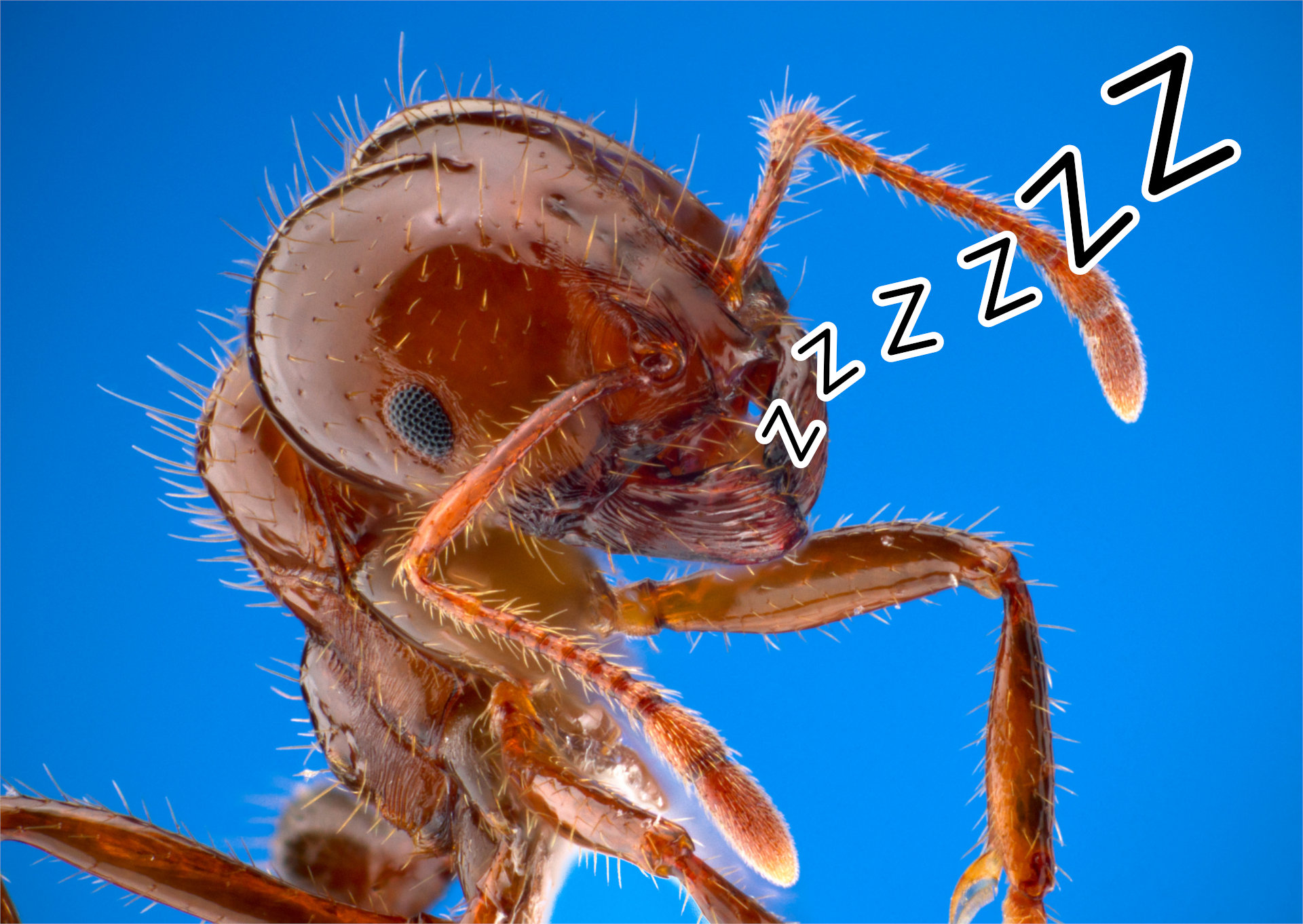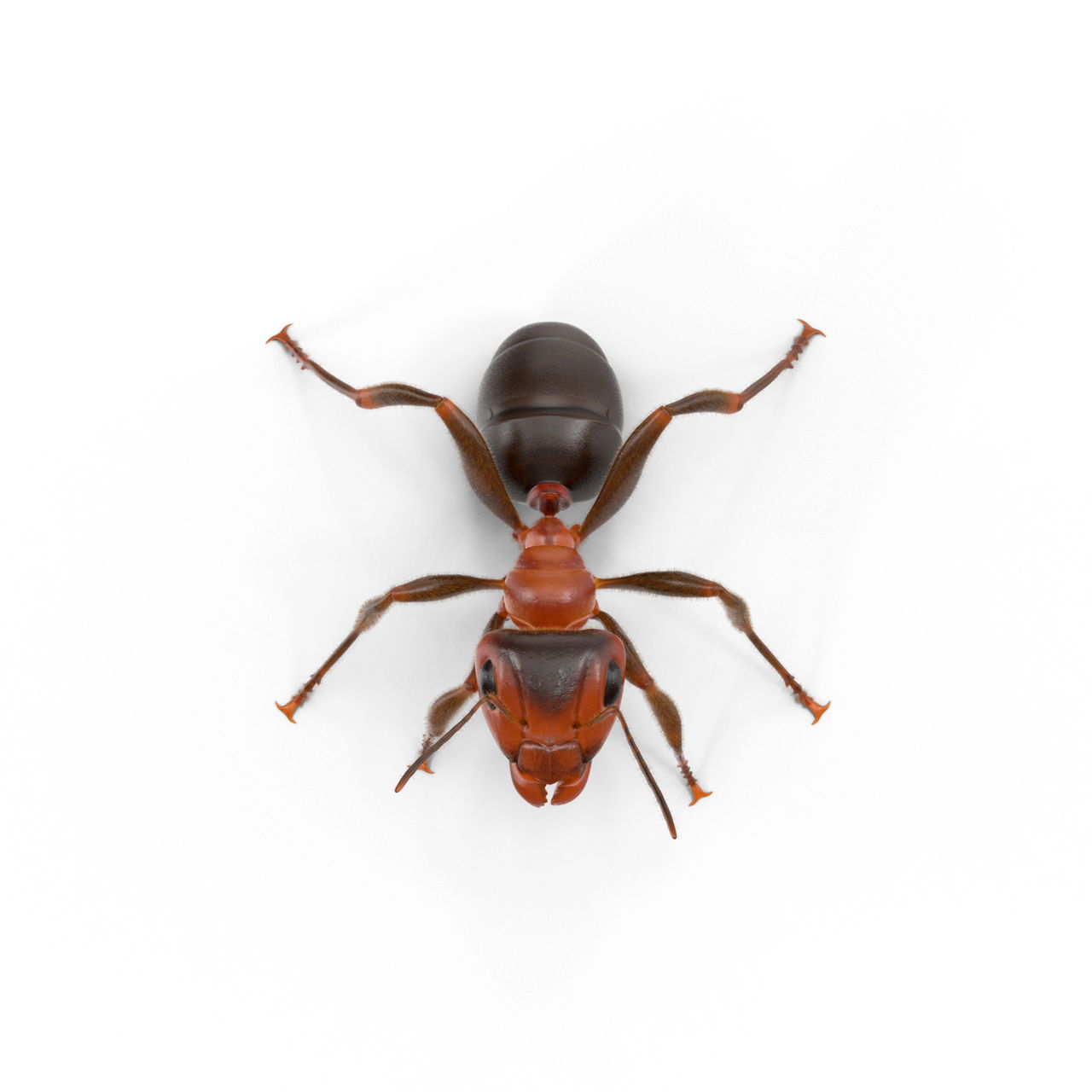Have you ever wondered if ants sleep? It's a question that's probably crossed your mind at some point, especially if you've spent time observing these tiny creatures bustling around their colonies. Ants are known for their relentless work ethic, but even the busiest workers need some downtime. So, do ants sleep? The answer might surprise you. In this article, we'll dive deep into the science behind ant rest patterns and uncover some incredible facts about these industrious insects.
When you think about it, ants are the ultimate multitaskers. They build intricate tunnels, forage for food, care for their young, and protect their colonies—all while maintaining a level of organization that would make any CEO jealous. But like all living beings, ants need to recharge. Understanding their sleep patterns gives us a glimpse into the complex world of insect behavior.
Whether you're an entomology enthusiast or just someone curious about the natural world, this article will provide you with all the answers you're looking for. From the science of ant sleep cycles to the surprising ways these tiny creatures manage their energy, we'll cover everything you need to know about the rest patterns of ants.
- Paige Bueckers Nude Debunking Myths Respecting Privacy And Highlighting A Stars Journey
- Sue Belle Robbins Net Worth Unveiling The Glamorous World Of A Hollywood Legend
Understanding Ant Sleep Patterns
So, do ants sleep? The short answer is yes, but their sleep patterns are vastly different from those of humans. Ants don't have eyelids, so they don't "close their eyes" the way we do. Instead, they experience periods of rest that resemble sleep. These rest periods are crucial for maintaining their energy levels and ensuring the smooth functioning of their colonies.
Research has shown that ants go through cycles of activity and rest throughout the day and night. Unlike humans, who typically sleep for several hours at a time, ants take short naps that last only a few minutes. This allows them to remain alert and ready to respond to any threats or opportunities that may arise.
Why Do Ants Need Sleep?
Just like humans, ants need sleep to maintain their physical and mental well-being. During rest periods, their bodies repair themselves, and their brains process information gathered during their busy workdays. Sleep also helps ants conserve energy, which is essential for their survival in competitive environments.
- Morgan Kohan Nude Unveiling The Truth Behind The Sensation
- Unveiling The World Of Yupmoviescom Your Ultimate Streaming Destination
- Energy conservation: Ants use sleep to recharge their batteries and prepare for the next wave of tasks.
- Improved performance: Rested ants are more efficient workers, which benefits the entire colony.
- Stress reduction: Sleep helps reduce stress levels in ants, allowing them to focus on their duties without becoming overwhelmed.
How Do Ants Sleep?
Ants don't sleep in the traditional sense, but they do enter a state of rest that serves the same purpose. During these rest periods, their metabolic rates slow down, and their responsiveness to external stimuli decreases. This allows them to conserve energy and recover from their daily activities.
Interestingly, different species of ants have different sleep patterns. Some ants take hundreds of short naps throughout the day, while others have longer rest periods that occur at specific times. These variations in sleep behavior are influenced by factors such as colony size, environmental conditions, and the specific roles of individual ants within the colony.
Do All Ants Sleep the Same Way?
No, not all ants sleep the same way. Worker ants, for example, tend to take more frequent but shorter naps, while queen ants may have longer periods of rest. This difference in sleep patterns reflects the varying demands placed on each member of the colony.
Queen ants, who are responsible for laying eggs and ensuring the survival of the colony, require more rest to maintain their reproductive capabilities. Worker ants, on the other hand, need to be ready to spring into action at a moment's notice, so their sleep patterns are more fragmented.
Ant Sleep Cycles: What the Science Says
Studies on ant sleep cycles have revealed some fascinating insights into how these insects manage their energy. One notable study conducted by researchers at the University of Sydney found that ants experience rapid eye movement (REM) sleep, which is associated with dreaming in humans. This suggests that ants may have complex mental processes that occur during their rest periods.
Another study published in the Journal of Insect Behavior examined the sleep patterns of fire ants and discovered that these insects take an average of 250 naps per day, each lasting about a minute. This high-frequency, low-duration sleep pattern allows fire ants to remain highly active and productive members of their colonies.
What Triggers Ant Sleep?
Several factors can influence when and how ants sleep. Environmental cues such as light and temperature play a significant role in regulating their rest patterns. Additionally, the demands of their colony and the specific tasks they perform can affect when and how long ants rest.
- Light levels: Ants are more likely to rest during periods of darkness, when there is less activity in their environment.
- Temperature: Cooler temperatures can cause ants to become less active, leading to longer rest periods.
- Colony needs: If there is a sudden demand for labor within the colony, ants may delay their rest to address the situation.
Do Ants Dream?
As mentioned earlier, studies have shown that ants experience REM sleep, which is associated with dreaming in humans. While we can't know for sure what ants dream about, it's possible that their dreams involve their daily activities, such as foraging for food or building tunnels.
Dreaming may serve an important function for ants, allowing them to process information and consolidate memories. This could help them improve their problem-solving abilities and make better decisions in their waking lives.
How Do Ant Dreams Compare to Human Dreams?
While both ants and humans experience REM sleep, there are significant differences in the nature of our dreams. Human dreams are often complex and emotionally charged, reflecting our experiences, fears, and desires. Ant dreams, on the other hand, are likely more focused on practical matters related to their survival and the functioning of their colonies.
The Role of Sleep in Ant Colonies
Sleep plays a crucial role in the success of ant colonies. By ensuring that individual ants get the rest they need, colonies can maintain high levels of productivity and efficiency. This, in turn, increases their chances of survival and reproduction.
Ant colonies are highly organized systems, with each member contributing to the overall success of the group. Sleep helps ants maintain their physical and mental health, allowing them to perform their duties effectively and respond to challenges as they arise.
How Does Sleep Affect Colony Dynamics?
The sleep patterns of individual ants can have a significant impact on the dynamics of their colonies. For example, if too many worker ants are resting at the same time, the colony may become vulnerable to predators or other threats. Conversely, if ants don't get enough rest, their performance may suffer, leading to a decline in the colony's overall productivity.
To address these challenges, ant colonies have developed sophisticated systems for coordinating rest periods among their members. This ensures that there are always enough ants awake and ready to handle any situation that may arise.
Comparing Ant Sleep to Human Sleep
While there are many similarities between ant sleep and human sleep, there are also some key differences. Both species require rest to maintain their physical and mental well-being, but the way we sleep is quite different.
Humans typically sleep for several hours at a time, often following a circadian rhythm that aligns with the cycles of day and night. Ants, on the other hand, take short naps throughout the day and night, allowing them to remain flexible and responsive to their environment.
What Can We Learn from Ant Sleep?
Studying ant sleep patterns can provide valuable insights into the nature of sleep and its importance for living organisms. By understanding how ants manage their energy and coordinate rest periods within their colonies, we can gain a better appreciation for the complexity of insect behavior.
These insights may also have practical applications for improving human sleep patterns. For example, learning how ants balance rest and activity could inspire new approaches to managing stress and fatigue in our own lives.
Conclusion: Do Ants Sleep?
Yes, ants do sleep, but their rest patterns are quite different from those of humans. By taking short, frequent naps throughout the day and night, ants are able to maintain their energy levels and ensure the smooth functioning of their colonies. Understanding the science behind ant sleep patterns provides us with a fascinating glimpse into the world of these incredible insects.
So the next time you see ants hard at work in your garden or kitchen, remember that they're not just tireless workers—they're also getting plenty of rest to keep them going. And who knows? Maybe there's something we can learn from their approach to balancing work and rest in our own lives.
Don't forget to share this article with your friends and family, and leave a comment below if you have any questions or thoughts about ant sleep patterns. There's always more to discover in the fascinating world of insects!
Table of Contents
- Unveiling The Truth About Sexy Video Kerala A Deep Dive
- Odia Viral Mms The Buzz The Facts And Everything You Need To Know


